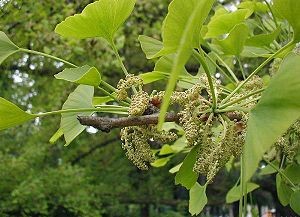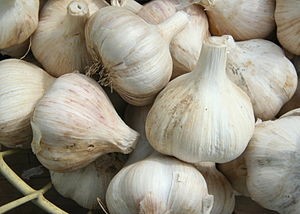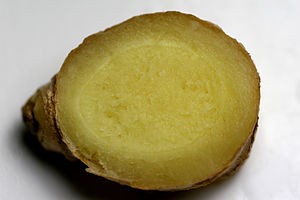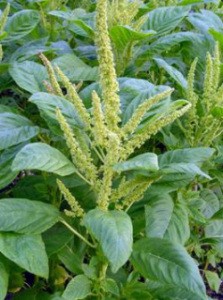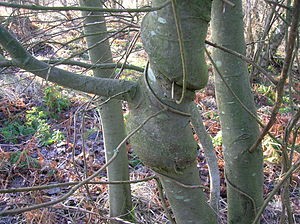Ginkgo Biloba
Ginkgo biloba is used both to prevent and treat stroke. It helps to prevent blood clots from developing and increases blood flow to the brain. This herb has also been shown to inhibit free-radical formation.
Ginkgo is widely used in Europe to treat complications of stroke, including memory and balance problems, vertigo and disturbed thought processes. Many studies show that this herb increases blood flow to the brain.
Ginkgo also helps reduce fragility of the capillaries. (Capillaries are the tiny blood vessels that fan throughout your body.) This can help prevent hemorrhagic stroke.
European physicians often prescribe an extract of ginkgo leaves for stroke survivors. Many doctors say that ginkgo prevents the stroke and, more importantly, it is nontoxic.
Select a product containing at least 24 percent ginkgo heterosides (sometimes called flavonglycosides) and take 40 to 80 milligrams three times daily.
Note: Seek medical advice before taking ginkgo if you are regularly taking any type of blood-thinning medication, including aspirin. In large amounts, ginkgo may cause diarrhea, irritability and restlessness.
Garlic helps prevent ischemic stroke in three ways:
* Garlic reduces blood pressure
* Garlic lowers cholesterol levels
* Garlic is an anticoagulant.
Garlic is the best anti-clotting herb. It contains nine anticoagulant compounds. It is a major herb for heart attack prevention because of its blood-thinning effect and its ability to help control high blood pressure. These same effects also help prevent ischemic stroke.
Well- researched studies show that taking garlic (raw or as a deodorized oil capsule) dramatically reduces platelet adhesiveness allowing improved circulatory function.
Use more garlic in your cooking. You can also add it in your salad. (If you are not going for an important meeting right after that!) You can also take garlic capsules or aged garlic (preferred.). Onions, scallions, leeks, chives, and shallots have similar benefits.
Dosage: Take 500 milligrams three times daily.
Caution: If you have hemorrhagic stroke, stay away from garlic and its other anti-clotting herbal relatives. (Ask your doctor whether you have ischemic or hemorrhagic stroke.)
Ginger (Zingiber officinale).
Ginger is a cardiac tonic, as it decreases cholesterol and helps poor circulation. Ginger prevents blood from clotting excessively. In one Indian study, taking about two teaspoons of ginger a day for a week neutralized the blood-clotting effect of 100 grams of butter.
You can use ginger in cooking, or you can brew ginger tea using one to two teaspoons of fresh grated root per cup of boiling water. Steep until cool. You can also sprinkle it in salads. It is a versatile herb.
Turmeric (Cucurma longa)
Many studies show that the compound curcumin, which is found in turmeric, helps prevent the formation of blood clots. Turmeric is an important herb in Ayurveda. It is also a key ingredient in Indian cooking and can be found in most curry spice blends. You might consider eating more curry dishes. You can find several recipes in our Healthy Recipes Section.
Carrot
In a Harvard study of 87,245 female nurses, consumption of carrots (and to a lesser extent, spinach) significantly reduced stroke risk. Women who ate five servings of carrots a week suffered 68 percent fewer strokes than those who ate carrots less than twice a month.
Carrots are rich in beta-carotene and other carotenoids, all members of the vitamin A family. Other studies show that people can reduce their risk of stroke by as much as 54 percent if they eat lots of fruits and veggies that are rich in beta-carotene and vitamins C and E.
So, eat more carrots. They are wonderful as snacks (especially the baby carrots). Include them in vegetable soups. You can also make carrot juice. If you really want to do it right, add some garlic and ginger to provide them with zest.
Pigweed (Amaranthus)
A six-year Harvard study of more than 40,000 health professionals showed that compared with those who consumed the least calcium, those who got the most had just one-third the risk of succumbing to heart attack. Many experts think that this also applies to stroke because of the biological similarities between ischemic strokes and heart attack.
Pigweed is an excellent plant source of calcium, with 5.3 percent on a dry-weight basis. About one-third of an ounce of fresh pigweed leaves would provide 500 milligrams of calcium. (The Daily Value is 1,000 milligrams.)
Use the young leaves in salads or steam the more mature leaves like spinach.
Spinach
Studies at Tufts University in Boston and the University of Alabama in Birmingham have demonstrated that folate can help prevent both heart disease and stroke. Compared with people who consumed little folate, those who ingested the most were only half as likely to show narrowing of the carotid artery, the artery that leads to the brain.
Spinach, cabbage, endive, asparagus, papaya, okra and pigweed have folate.
English pea (Pisum sativum), Scurfy pea (Psoralea corylifolia)
Nearly all legumes contain genistein, a cancer-preventive nutrient. In addition to guarding against cancer, genistein also appears to have a significant anti-clotting effect. So, it may also help prevent ischemic stroke and heart attack.
You can get genistein from tofu and soy products. Or, you may choose English peas or other beans and legumes, instead.
One food that is very rich in genistein is scurfy pea. This is consumed as a food (and reputed to be an aphrodisiac) in Asia. It contain much more genistein than soybeans!
Willow
Willow bark is herbal aspirin, and a low-dose aspirin has been shown in several studies to reduce the risk of ischemic stroke by about 18 percent. (Low-dose aspirin also cuts heart attack risk by about 40 percent in men and 25 percent in women.)
Instead of taking aspirin, you can take a tea made from willow bark, meadowsweet or wintergreen. Add 1 or 2 teaspoons of any of these dried herbs to either hot herbal teas or cold lemonade. Drink two to three cups a day.
Caution: Willow bark and the other aspirin-like herbs should only be used to prevent and treat ischemic stroke. They are powerful anticoagulants. Hence, they may increase risk of hemorrhage, including hemorrhagic stroke. If you”re at risk for this type of stroke, consult your doctor before taking aspirin or any aspirin-like herbs.
Avoid these if you”re allergic to aspirin.
Pineapple
Pineapple contains an enzyme known as bromelain that is best known for its ability to break down proteins. It”s a key ingredient in meat tenderizers. But bromelain also has an anti-clotting action that might help prevent ischemic stroke and heart attack.
Bilberry (Vaccinium myrtillus)
Bilberries, blueberries and huckleberries contain compounds known as anthocyanins. European studies show that these compounds help prevent blood clots and also break down plaque deposits lining the arteries. Bilberries are also shown to help to maintain capillaries.
Bilberries and their relatives might help prevent ischemic stroke without increasing the risk of hemorrhagic stroke. One glass of huckleberry juice taken twice a week may help prevent stroke, according to herbalists.
Evening primrose
Evening primrose oil is rich in gamma-linolenic acid (GLA), which has potent anti-clotting and blood pressureÂlowering actions. It is believed to be useful in the prevention of stroke and heart disease. Borage oil is also rich in GLA.
Astragalus
Astragalus improves tissue oxygenation.Dosage: Take 250 milligrams of standardized extract four times a day.
CalamusCalamus helps restore brain tissue damaged by stroke.Dosage: Standard infusion 3-9 g; Tincture – 10-30 drops.
Cayenne PepperCayenne pepper improves circulation and heart function without raising blood pressure. It also enhances the power of other herbs taken at the same time.
Dosage: Take 100 milligrams twice daily, with meals.
Green Tea
Green tea may act as one of the most potent free-radical scavengers to protect against the peroxidation of lipids, a contributing factor in atherosclerosis.
Choose a decaffeinated standardized extract containing at least 50 percent catechins and 90 percent total polyphenols, and take 300 to 500 milligrams daily.
Hawthorn
Hawthorn has been reported to prevent or slow the progression of arteriosclerosis.
Dosage: Choose a standardized extract containing 1.8 percent vitexin-2 rhamnoside and take 100 to 200 milligrams two or three times a day.
Horsetail
The silica in horsetail maintains the elastic connective tissue of the arteries. It promotes arterial impermeability to harmful lipids, preventing deposits.
Dosage: Take 1 cup of horsetail tea or 1 tbsp. of horsetail juice three times daily.
Kava kava
Kava kava helps to protect the brain against oxygen deprivation.Dose: Choose a standardized extract containing 30 percent kavalactones and take 250 milligrams twice a day.
Note: In excess amounts, this herb can cause drowsiness. Do not exceed the recommended dose. Do not use kava kava if you are pregnant or nursing, if you have Parkinson”s disease, or if you are taking a prescription medication for depression or anxiety.
Pine-bark and Grape-seed Extract
Pine-bark and grape-seed extract are high in proanthocyanidins (also known as OPCs) that increase the structural strength of weakened blood vessels.
Dosage: Take 25 to 50 milligrams of either two or three times daily.
Herbs for improving the circulation to extremities: elder flowers, hyssop, rosemary, yarrow.
Herbs for nourishing the nervous system: damiana, lavender, rosemary, Siberian ginseng.
Caution: These remedies are not meant to be used as a treatment for stroke. If you suspect a stroke, seek emergency medical treatment immediately. Time is of essence.


